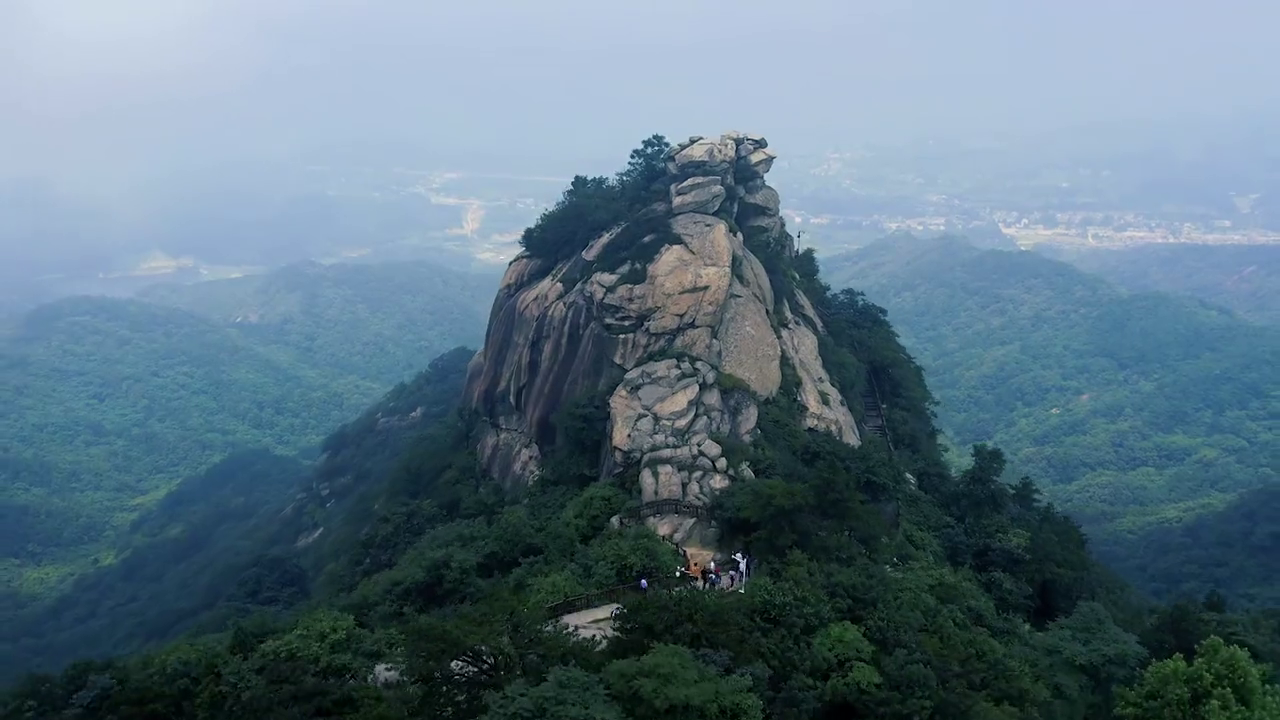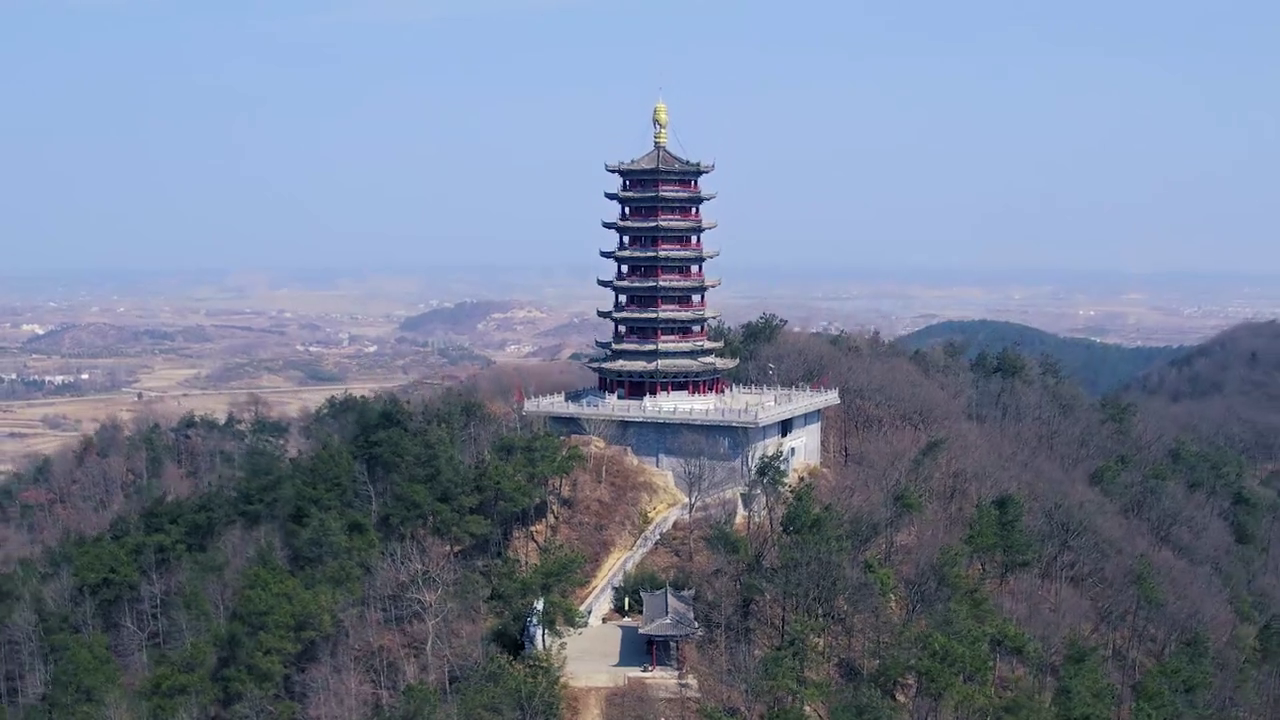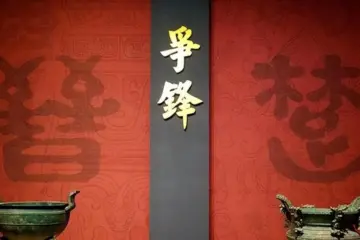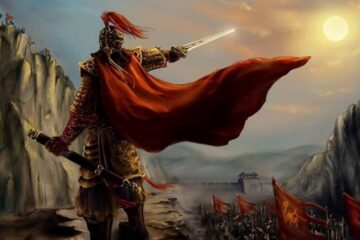The strategic location of Wulu was lost before the war. The capital of Wei, Chuqiu (located northeast in present-day Huaxian County, Anyang City, Henan Province), was completely exposed to the Jin army. Under the powerful offensive led by Xianzhen, the State of Wei quickly surrendered. The ruler of Wei, Duke Cheng of Wei, fled to the territory of Chu (Wei and Chu were linked through marriage, as Duke Cheng’s sister was married to King Cheng of Chu). Shortly thereafter, the State of Cao was also captured by Xianzhen, and the ruler of Cao, Duke Gong of Cao, became a prisoner under the Jin State.
Counting the days, from the departure of the Jin army from its homeland to the conquest of the states of Cao and Wei, it took less than two months in total. To obliterate two countries within two months, and with such minimal casualties in the army, considering the entire realm, perhaps only the extraordinary military genius Xianzhen could achieve such a feat.
The swift advance of the Jin army completely disrupted the military plans of King Cheng of Chu. He hastily divided his forces, sending General Cheng Dechen of Chu to continue the siege of the State of Song, while he personally led his troops to rescue Cao and Wei. However, halfway there, he heard the news that the Jin army had already conquered the states of Cao and Wei. He was greatly shocked and exclaimed:
“The Jin State fights with such incredible speed, doesn’t it?”
King Cheng of Chu became anxious. He hastily withdrew his troops back to Chu and sent word to Cheng Dechen, who was still besieging the State of Song, to retreat as soon as possible. He conveyed, “The Jin State has the formidable general Xianzhen, and Chu is not a match for it!”

Cheng Dechen was indeed considered Chu’s top general. He had never experienced defeat from the moment he was born. The word “lose” didn’t exist in his dictionary. While Chu King’s mention of a skilled opponent might have been enough, upon hearing that there was a skilled adversary, his competitive spirit ignited. He promptly declared to the Chu King, “Let me defeat the State of Song and return in triumph. If I encounter Xianzhen of the Jin State, allow me to challenge him. If I cannot win, I am willing to accept military discipline.”
It’s true that commanders often act with some autonomy on the battlefield, and the self-absorbed Cheng Dechen left the Chu King with no other choice. May the heavens favor Great Chu, and hopefully, Cheng Dechen won’t suffer a severe defeat.
This news reached the Jin army, and Xianzhen smirked: Excellent, the discord among Chu’s ruler and generals, coupled with Cheng Dechen’s arrogance and underestimation, will inevitably lead to Chu’s defeat. However, to maintain the upper hand before the major battle, Xianzhen had two crucial tasks ahead.
Firstly, he needed to find allies. The Chu army besieging Song had been divided, with around 70-80 thousand troops still under King Cheng’s command. Additionally, the allied forces of the minor Chu vassals—Zheng, Xu, Chen, and Cai—added another 30 thousand. The total force exceeded 100 thousand. In contrast, the Jin army could muster at most 50 thousand troops. With such a significant numerical disparity, Xianzhen needed to secure assistance from other states to even the odds.
Secondly, he had to determine the battleground. The Jin forces were stationed in Taoqiu (present-day Xibei Township, Dingtai County, Heze City, Shandong Province), while the Chu army was stationed outside the city of Shangqiu in Song. The two locations were separated by hundreds of miles. If the Jin army initiated the attack, they would have to venture deep into Chu’s territory to the south. Launching an expedition on foreign soil would make logistics challenging, and Chu’s forces could easily reinforce the besieging troops around Song at any time. This was highly disadvantageous. Thus, Xianzhen’s best option was to provoke Chu’s commander Cheng Dechen into initiating the attack. By doing so, he could shift all these unfavorable factors onto Chu’s side. Sun Tzu’s principle of “using the enemy’s own strength against him” was also learned from Xianzhen’s strategy.

These two matters weren’t easy to handle, and people aren’t fools to just follow along with your intentions! However, even the trickiest situations weren’t a problem for Xianzhen, whose intelligence surpassed all expectations. With just a few strategies, he managed to make the world turn in his favor:
- He had the State of Song send gifts to the powerful states of Qi and Qin, asking them to act as mediators and persuade Chu to withdraw its troops. If Chu agreed, it would be ideal; if not, Qi and Qin would lose face and likely side with Jin, collectively confronting Chu.
- At the same time, Xianzhen provoked Chu’s vassal states Cao and Wei by allocating some of their territories to the State of Song. This move was intended to anger Chu and force Cao and Wei to sever ties with Chu, using strong language.
As Sun Tzu’s “The Art of War” suggests, “The highest strategy in warfare is to defeat the enemy through cunning tactics. Next is to conquer the enemy through diplomacy. After that, comes engaging the enemy in battle.”
It appeared that Xianzhen wasn’t just a military strategist; his skills in diplomacy were equally formidable. He used every possible means to unite allies and isolate enemies, showcasing the essence of diplomacy.
As expected, Cheng Dechen, the Chu general, was incensed by Xianzhen’s cunning plan. Instead of withdrawing, he lifted the siege of Song and led a formidable force northward to face off against the Jin army. On the other side, the mediation efforts of Qi and Qin failed, and they finally agreed to join the battle. The unified resistance against Chu was officially formed. As a result, the Jin forces swelled to a hundred thousand, balancing the odds compared to the Chu army.
Upon receiving the news, Xianzhen smiled enigmatically. Cheng Dechen, you’re quite obedient. Perfect. Let me engage you in a man-to-man confrontation. I hope you’ll display your full strength, compete at your best, and present the most spectacular closing performance for the world. Let’s roll out the most splendid and dazzling red carpet on the path to Jin’s dominance. I will also go all out to deliver the most perfect and magnificent blow, so you can rest in peace beneath the earth, a death worthy of your pride.
On April 1st, 632 BCE, disregarding the Chu King’s opposition, the proud and self-assured Chu general Cheng Dechen led a coalition force of Chu, Zheng, Xu, Chen, and Cai northward with great momentum, like a raging storm. They sought the main force of the Jin army for a decisive battle, and the two sides lined up their formations near Taoqiu. The war was on the brink of breaking out.

This was the first massive direct confrontation between the “civilized” and “barbarian” states since the Spring and Autumn Period. The fate of the world hung in the balance. However, just as the two sides were about to engage, the combined forces of Jin, Qi, Qin, and Song unexpectedly retreated, pulling back an astonishing ninety miles.
This retreat is famously known in Chinese history as the “retreat to avoid a conflict”.
According to Duke Wen of Jin’s explanation, his retreat this time was to save face for King Cheng of Chu, considering that the latter had offered shelter during Duke Wen’s adversity. His withdrawal before engaging in battle was akin to a martial arts master granting his opponent three moves as a sign of magnanimity, demonstrating his own demeanor and leveraging the moral upper hand.
Xianzhen wholeheartedly supported this retreat, not for the sake of moral principles, but due to military considerations. The Chu forces were weary from a distant expedition. Making them run an extra 90 miles would be even better. Moreover, according to the Zhou ritual, if Chu had pursued Duke Wen, it would have been considered a breach of etiquette for a vassal (Cheng Dechen) to chase after a lord (Duke Wen). This would likely anger the troops of the Huaxia coalition. By avoiding the sharpness of the Chu forces, Jin could choose an opportune moment and advantageous terrain for the decisive battle. This approach would also enable them to get closer to their home territory, shortening supply lines. In other words, this retreat wasn’t passive or negative; it was an active retreat, a strategic step back to create opportunities and accumulate strength for advancement. As a classic line goes: “We are taking a big step back now so that we can take a bigger step forward later!”
Unaware of these calculations, Cheng Dechen believed the enemy was retreating out of fear and hastily ordered his troops to dismantle the hard-constructed encampments, following the Jin army.
In the end, the war unfolded on the battlefield chosen by the Jin forces. Both sides had approximately a hundred thousand troops each. However, due to Chu’s distant expedition, the initiative was firmly held in Xianzhen’s hands.
This large-scale battle is historically known as the “Battle of Chengpu.” On the vast plains of Chengpu (near Linyi Township, Juancheng County, southwest of Heze City, Shandong Province), a total of two hundred thousand troops from nine states gathered, making it not only unprecedented but also a remarkable scale.

At this moment, all the renowned heroes of the land had almost congregated here. Everyone was about to fight to determine victory or defeat, with the outcome influencing the fate of the world. The excitement was palpable.
In this moment, it was crystal clear to everyone that this valley, rarely visited by humans, would be submerged in the warriors’ blood within a few hours, transforming into a fearsome battlefield. The destiny of the world would also be unveiled then: Who would be the tragic hero of a futile struggle, and who would become the true master of the world?
The two pivotal figures deciding the fate of the world were already in their respective positions: Xianzhen and Cheng Dechen. The success of this drama relied on you, the two protagonists. Go for it!


